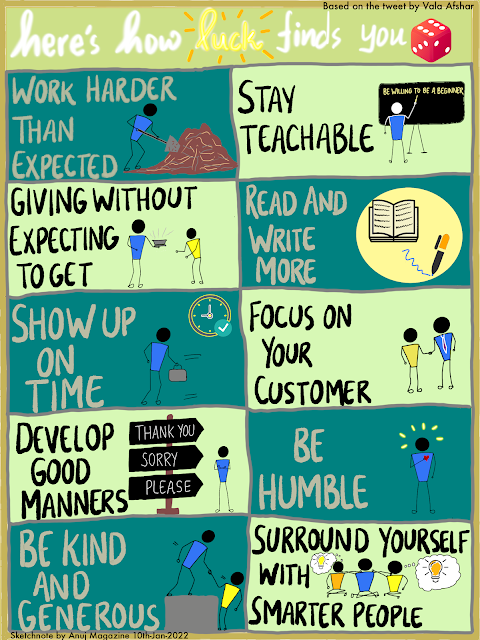A story about Warren Buffett goes like- After Buffett opened his own fund, a writer called one day and asked to interview him. The writer posed a tough question to Buffett about a public company. Buffett told him the answer was in an annual report he'd just read. The writer studied the report, but then called Buffett to complain there wasn't an answer.
"You didn't read carefully," Buffett said. "Look at footnote four teen."
Sure enough, there it was. The writer was dumbfounded.
Like what Buffett did here, Non Obvious thinking is all about doing what it takes to see/notice what no one else sees. It is about seeing the world in a way other people don’t see it.
This is a term that is the central theme of the book that i recently read- "Non Obvious Mega Trends". This book is an yearly release that curates upcoming trends that are shaping up the world. Trends-spotting by it's very nature requires Non Obvious thinking principles but it's application is not limited to trend-spotting alone.
When everyone else was skimming a report, Buffett was obsessively scouring the fine print, going above and beyond, studying every word, looking for clues. Reading the footnotes isn't just a task on Buffett's to-do list-it's his outlook on life. (Buffet's story source: Book: The Third Door)
Non Obvious Thinking hence, is a mindset. The Book- "Non Obvious Mega Trends" unpeels various elements that makes this mindset viable. They are:
1. Be Observant- Train yourself to notice the details.
2. Be Curious- Approach unfamiliar situation with a sense of wonder.
3. Be Fickle- Save interesting ideas for later consumption.
4. Be Thoughtful- Take time to develop meaningful point of view.
5. Be Elegant- Describe ideas in simple, understandable ways.
(Catch more about these in my sketchnote)
Do share more examples of where you have seen Non Obvious thinking reap benefits.





